When group organizing and development is performed equitably, it embodies the tradition and voices of the people who live in the local community and focuses on racial justice. This is a core theory of The Kresge Foundation’s Arts & Society Software, which, by its Imaginative Placemaking strategy, seeks to elevate arts, society and community-engaged design as central components of group development and scheduling.
In late 2020, Kresge’s Arts & Lifestyle Plan hosted the Racial Equity Exploration and Discovery (REED) convening with leaders of community improvement, arts and society businesses to trade concepts about means to progress racial justice. Group Prosperity Partners labored with the Kresge workforce to design and style and aid the virtual meeting, and an advisory team of Kresge grantees educated the convening design and style.
Discussions at the convening targeted on a few principal matters: Sharing methods organizations are now utilizing to advance racial justice, pinpointing new tactics to undertake, and identifying the method supports wanted. Dependent on the result of the conversations, REED individuals determined eight possibilities to progress racial justice.
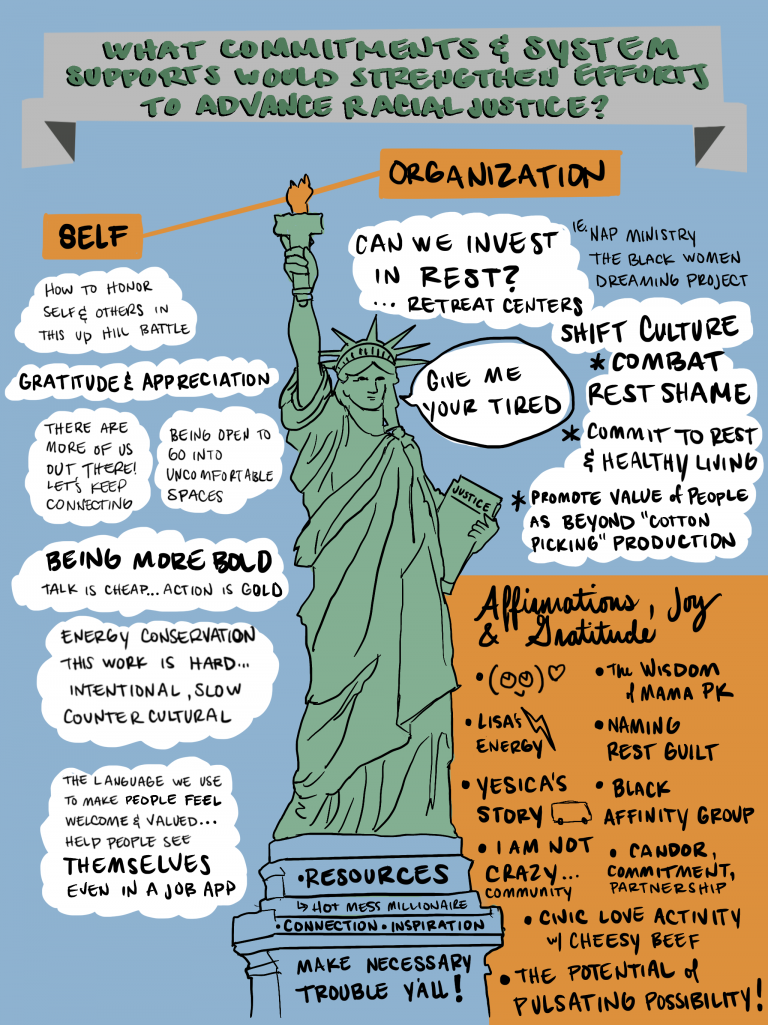
8 Alternatives to Advance Racial Justice
- Shift power and methods so that grassroots companies and artists are accessing what they have to have to progress their practice and understand their ambitions. Institutional philanthropy underfunds grassroots corporations and artists of color. Participants are assisting grassroots corporations and artists accessibility what they need to satisfy their missions by way of a selection of approaches, which include pushing again in opposition to white silence and complacency in huge establishments and empowering Black, Indigenous and other people of coloration (BIPOC) to tell their have stories.
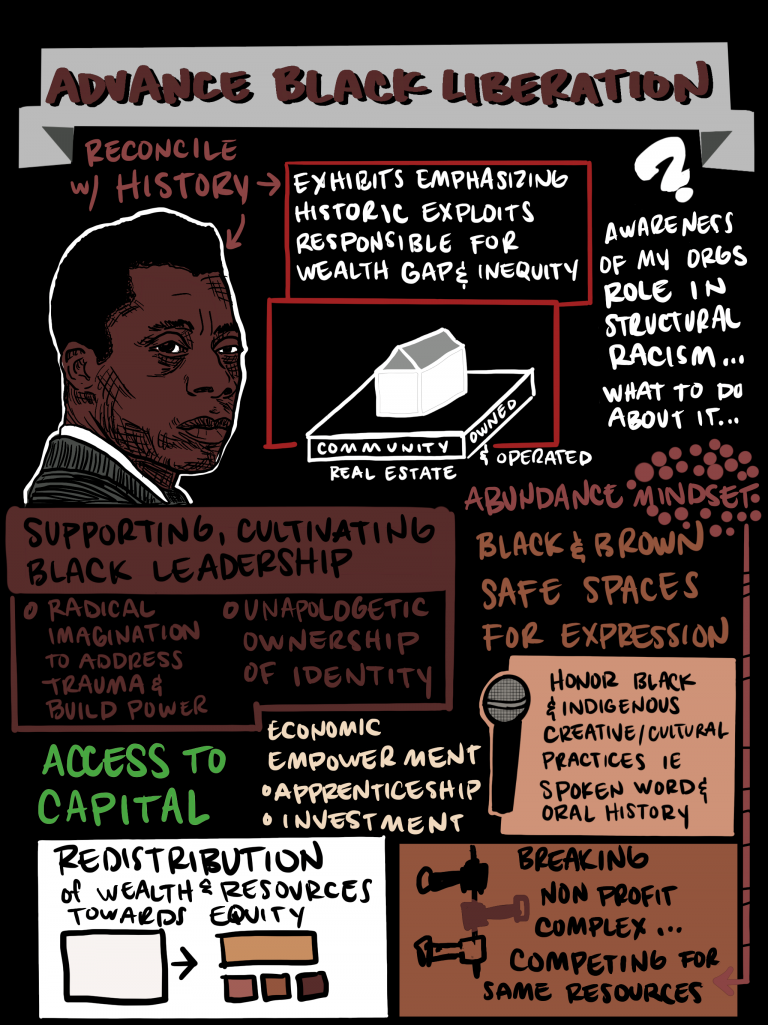 2. Carry out antiracist organizational procedures that confront anti-Black racism. In addition to working to advance racial justice externally, REED members admit that do the job to advance racial justice within their companies is ongoing and involves unique notice to anti-Black racism. Techniques they are confronting this situation inside of their corporations incorporate updating organizational procedures, procedures and tactics (these kinds of as choosing techniques and HR policies) to be much more equitable and inclusive, and constructing advocacy and activism to confront anti-Black racism.
2. Carry out antiracist organizational procedures that confront anti-Black racism. In addition to working to advance racial justice externally, REED members admit that do the job to advance racial justice within their companies is ongoing and involves unique notice to anti-Black racism. Techniques they are confronting this situation inside of their corporations incorporate updating organizational procedures, procedures and tactics (these kinds of as choosing techniques and HR policies) to be much more equitable and inclusive, and constructing advocacy and activism to confront anti-Black racism.
3. Progress Black liberation in means that realize its intersectionality with course. Capitalist constructions operate counter to the values and techniques that are elementary to collective liberation. And however nonprofit leaders must obtain ways to get the job done in just capitalist systems to protected the sources needed to endure. As just one participant reported, “There are Black people that have been performing this perform for a prolonged time in strategies that are free of charge or a person-off, but they don’t have a way to establish techniques of financial gain and profits generation.” Members are having artistic strategies to attempt to subvert capitalist programs so their corporations can survive and prosper. For illustration, one group owns room and has made available very low-lease house to artists. Yet another firm set up by itself as a nonprofit generation corporation and inventive company to allow more autonomy in excess of the complete creative procedure. 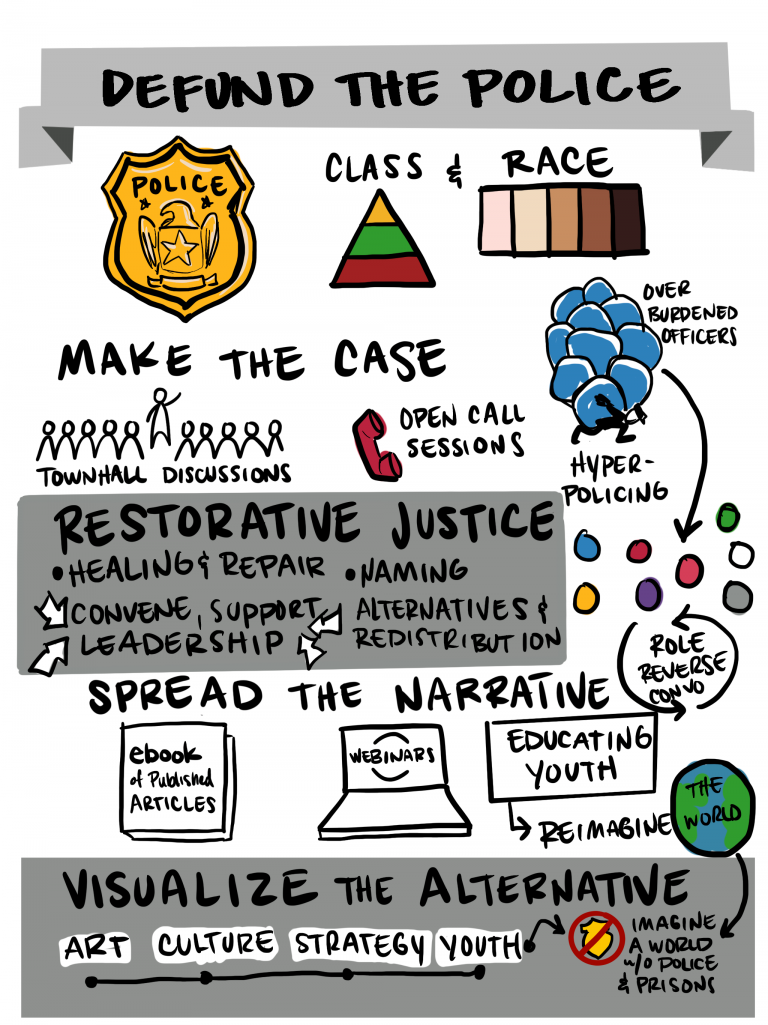
4. Defund the law enforcement. Communities across the region are driving conversations about ending mass incarceration, and local community enhancement, arts and culture organizations can participate in a role in sharing stories, building empathy and relationship and facilitating conversations that generate answers. For case in point, Building Justice + Coming up with Spaces has stood for the total unbuilding and radical reimagining of the legal justice program and its fiscal and racial underpinnings. It engages communities in the structure and advancement of new prototype structures, spaces and equipment that boost divestment from institutions that oppress and traumatize us and reinvestment in infrastructure which heals, restores and empowers.
5. Assistance artists and communities for the duration of COVID-19. The pandemic has put a strain on artists and communities economically, bodily and emotionally. Group advancement, arts and culture businesses can aid via several methods, these as serving as a dependable broker of data about COVID and participating the group in distinct approaches for far more meaningful engagement. REED participants described endeavours they were being using to listen deeply to community demands and force in opposition to procedures that exclude essential voices.
6. Embed culturally grounded healing and restorative practices into our work. Human relationship, therapeutic and restoration are a significant basis to maintain the work of pursuing racial justice. REED individuals shared how they embed these practices inside of their corporations and in their perform with communities, this sort of as incorporating meditative time into the perform working day to assist the mental health and fitness of workers and generating interactive art with the group to foster relationship among community customers.
7. Support communities in making their personal electrical power. Equitable community enhancement and setting up calls for communities to have voice in shaping the eyesight for what they want their neighborhood to seem like. REED individuals are supporting communities in making their very own electricity via involving group members in conclusions that affect them, assisting local community members understand and articulate their benefit and encouraging other corporations to adopt equitable and inclusive tactics.
8. Draw on artists and creatives to lead us in radical reimagination and new ways of imagining. Transferring away from techniques of racism and oppression will call for us to consider a world none of us has ever found prior to. Artists and creatives can participate in a strong job in shaping a collective vision of the society we aspire to develop into. As just one participant reported, “Artists’ creativeness and creativity enable us all to realize and recognize the factors of racist, white supremacist techniques that we all operate and dwell in and think about approaches to tackle those people problems.”
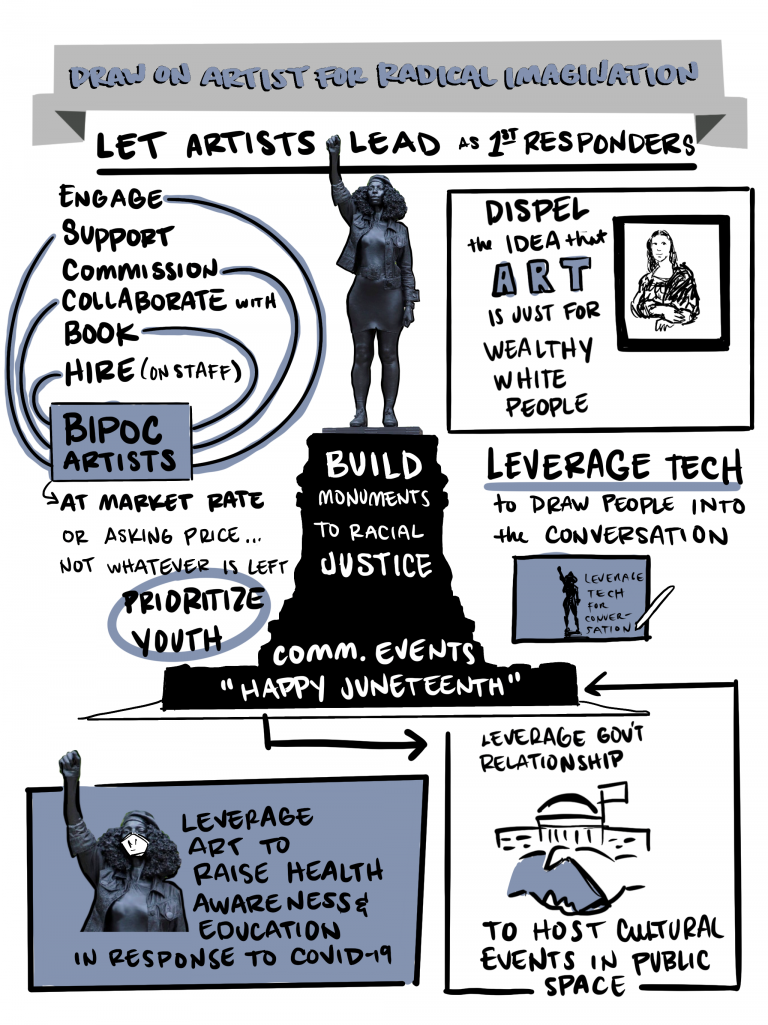
Technique Supports Desired to Advance Racial Justice
In addition to sharing their very own organizational procedures and commitments, contributors mirrored on what they have to have from funders and other actors in the procedure to permit and speed up progress on racial justice. A handful of themes emerged:
- Move from rhetoric to motion. First, REED members challenged institutional funders and other programs actors to move beyond rhetoric to action. They expressed aggravation with styles of foundations and other properly-resourced institutions obtaining recurring conversations about the importance of racial justice with no meaningful action to back again it up. They hope to see major shifts in funding patterns, with additional means going to BIPOC-led corporations who are doing work in communities of shade to advance resident-pushed change. They also inspired funders and other organizations with electric power and sources to be much more vocal about the methods of their peers, wielding their energy and connections to travel adjust across the sector.
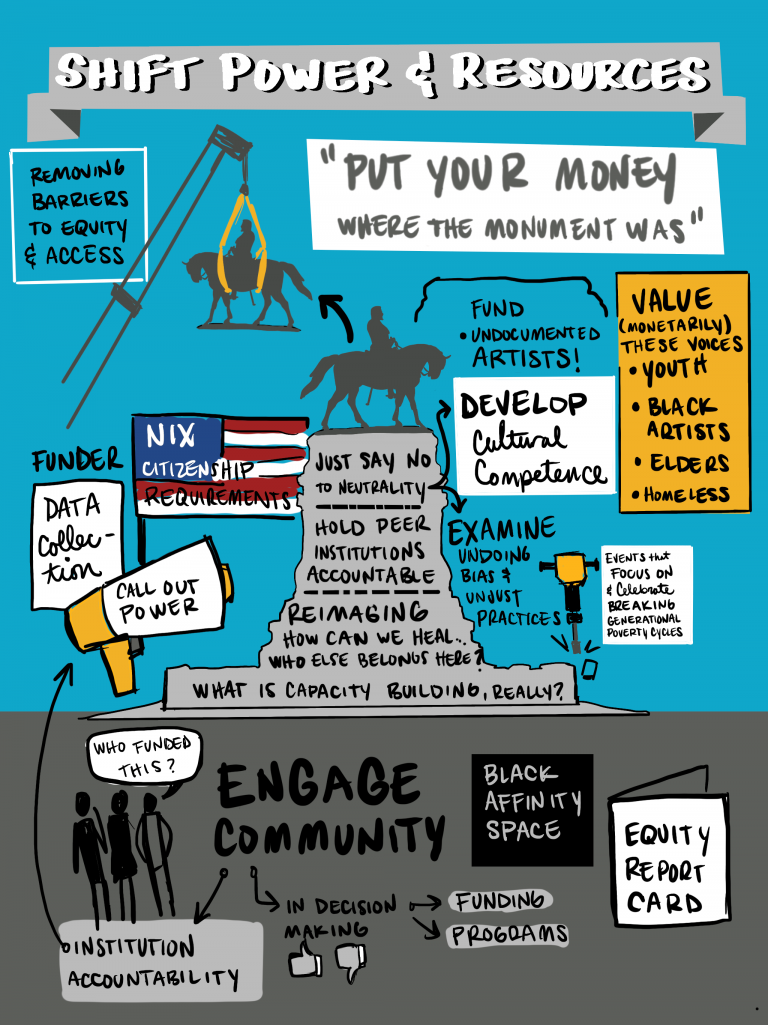
- Commit in organizations’ internal racial justice ability. Community progress, arts and society organizations operating to advance racial justice externally as a result of their programming ought to also get the job done to progress racial justice inside of their businesses. This necessitates intentionality, time, and fiscal assets. These organizations need financial investment, complex help and connection with peers to continue on to make development. Funders and other procedure actors can engage in a position in supporting these organizations and holding them accountable.
- Invest in organizations’ rest and restoration. At last, and most importantly, corporations doing work to advance racial justice have to have place for relaxation, restoration and healing. Racial justice work is tiring, and the situations of 2020 have been especially exhausting for numerous. For much too extensive, the nonprofit sector has incentivized martyrdom and a tempo of perform that is unsustainable. This is 1 of the elements that has caused hurt to BIPOC working in the sector. It is time for a lifestyle change in the sector that makes space for the relaxation, restoration and healing that is significant for this operate to endure. Businesses can undertake guidelines and techniques that boost relaxation and restoration for staff. Funders can give funding that enables leaders and businesses to carve out the room they want to relaxation.
